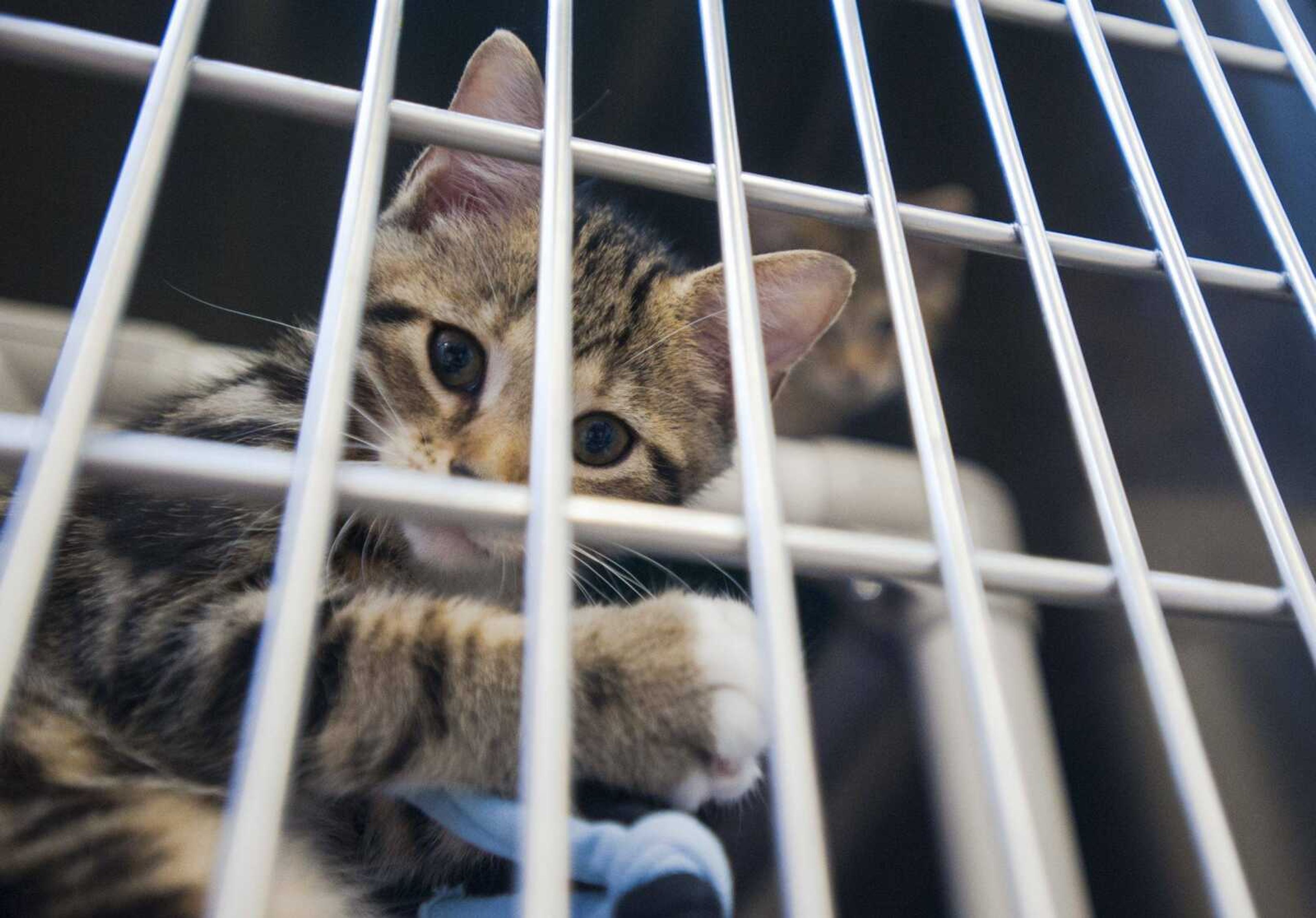Humane Society closes door on feral cats says not equipped to handle them
The local humane society will no longer take feral cats trapped by animal control officers in Cape Girardeau, Jackson and surrounding jurisdictions. Humane Society of Southeast Missouri officials said Thursday the new policy will be in its animal-shelter contracts with area governments...
The local humane society will no longer take feral cats trapped by animal control officers in Cape Girardeau, Jackson and surrounding jurisdictions.
Humane Society of Southeast Missouri officials said Thursday the new policy will be in its animal-shelter contracts with area governments.
The new annual contract with the City of Cape Girardeau takes effect July 1.
Under the fiscal 2020 contract, the city will pay the Humane Society $63,000 to take in animals, mostly dogs and cats, picked up in the city.
That is $1,900 more than was paid by the city in fiscal 2019, according to city officials.
Humane Society executive director Tracy Poston said the organization enacted the new policy on feral cats in response to an incident that occurred in April when a Cape Girardeau's animal control officer brought a large number of feral cats to the animal shelter.
Cape Girardeau deputy city manager Molly Mehner said an animal control officer trapped 16 feral cats, including several that were pregnant, at a Mount Auburn Street property over the course of a couple of weeks in April.
Poston said at one point the shelter was home to 27 feral cats.
"A feral cat is basically a cat you can't pick up, you can't touch," she said. "They are a wild community cat."
Charlotte Craig, president of the Humane Society board of directors, said the wild cats can "hurt people."
She added, "You can't adopt them out. You can't feed them. You can't clean out the kitty litter."
Poston said, "You can't touch them in any way without it being a danger to the staff members."
Craig said the feral cats were "stacked on top of each other" at the shelter.
Poston said such cats are not suitable for adoption. "You have to keep them locked up until you can euthanize them," she said.
Both Poston and Craig said the shelter is not completely closing the door on accepting feral kittens. "We call them hissy, spitty, kittens," Poston said.
She said that "we can tame them down if they are not too old."
In the past, the shelter received 30 to 40 feral cats a year, according to Poston.
She said Cape Girardeau nuisance abatement officers previously had not been bringing "all of their feral cats" to the shelter.
Craig said the city has been bringing more feral cats to the shelter in recent months. "We are not equipped to deal with them," she said.
Mehner, the deputy city manager, said the city's nuisance abatement officers used to trap feral cats and euthanize them at the police station. But the city began taking feral cats to the Humane Society shelter more than a year ago after the city could no longer secure the drug needed to euthanize the animals, Mehner said.
Cape Girardeau city officials now are seeking to work out agreements with local veterinarians to euthanize feral cats trapped by the city's nuisance abatement officers.
Mehner said city officials hopes to have an agreement in place later this summer.
But Mehner and Humane Society officials hope a future partnership could provide a more permanent solution.
Poston said the Humane Society's strategic plan calls for trapping feral cats, spaying and neutering them, and "tipping" or notching their ears before releasing them. Tipping identifies those cats as ones that have been spayed or neutered.
"We are not prepared financially or volunteer-wise to do that at this time." she said.
Poston said such a program requires a partnership with local governments. She said she hopes such a program can be implemented within the next five years.
Craig and Poston said all communities have feral cats.
Poston said the cats are in "a lot of neighborhoods." Feral cats are prolific breeders. "The numbers can go sky high," she said.
One male and one female cat and the successive generations of cats in that family can produce 2,000 cats over four years and 2 million over eight years, Poston said.
"It is a bad domino effect," she said.
Do you like stories about government and courts? Keep up with the latest news by signing up for our daily morning headline email. Go to semissourian.com/newsletters to find out more.
Connect with the Southeast Missourian Newsroom:
For corrections to this story or other insights for the editor, click here. To submit a letter to the editor, click here. To learn about the Southeast Missourian’s AI Policy, click here.











